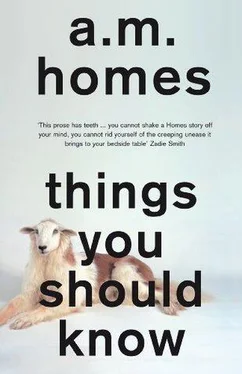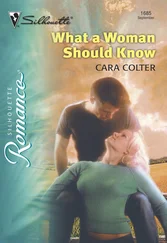Every day we stayed at the pool until Henry’s mother called the office and had us paged and ordered home. Then waterlogged, bloody-eyed, bellies bloated from the ingestion of too much chlorinated water, cheap snack-bar pizza, and too many Milky Ways, we walked home, wet towels around our necks, our little generals shriveled, clammy, and chafing under our cutoffs. We bore it all proudly, as though it were the most modern medical treatment, the prescription guarantee for a better life, a bright manhood. Our flip-flops slippery wet, heels sliding off and into the dirt, strange evening bugs and twigs snapping at our ankles, we wound down the long hill onto the road, and then across the road, through some yards, through the short woods between developments toward the light in the Henrys’ kitchen window.
As the days stretched out to full length, Mrs. Henry always started talking about where she wanted to spend her summer vacation, two golden weeks she’d suffered the year for. She’d talk about going to Rome to see the pope or to Venice to ride in a gondola or even off to Australia to see koala bears, but in the end the Henrys always ended up going somewhere like the nearest beach, toting me along because it was easier to bring an extra kid to entertain Henry than to try to do it themselves.
In the evenings, after dinner, Mrs. Henry went out onto the new wooden deck that Mr. had built over the old slab-o’-concrete porch. While baby June played with her dolls, Mrs. Henry sat back on a lounger holding a tall glass of diet soda, filled with ice cubes melted down into hailstones. Every now and then, she’d shake the drink, mix it up, and say, “Brings the carbonation to life.”
As soon as the weather got warm and everyone started running in and out of the new sliding glass door, Mrs. Henry went to the hardware store, bought a roll of glow-in-the-dark orange tape, and made a huge safety star on the glass door, top to bottom, to remind everyone not to go charging through.
“I don’t want anyone ending up with a face full of glass, stitches, scars, and disfigurement. I’d feel terrible.”
It worked. We all felt careful and safe. Mrs. H. sat out there resting with baby June while Henry and I played badminton in the yard. Shuttlecock. We loved that word. We said it loudly and brightly a thousand times a day for absolutely no reason. We’d go down to Woolworth’s and loudly ask each other, “You don’t think they’d have shuttlecocks here, do you?” The shuttlecock would go up high in the air, its red rubber end obscene, wonderful, and probably the only reason we played the game. The cock would rise into the last moment of light and then sink into the darkness of the Pennsylvania backyard, dropping softly onto the grass.
Deep at the farthest end of the yard, round, multicolored plastic lights bobbed up and down on the back fence. The lights had been up every one of my Philadelphia years, as though the Henrys’ life were a never-ending tropical party, as if they were the happiest people in the world. Sometimes the lights were like buoys. Henry and I would lie out on the deck pretending we were at sea. Depending on our mood, the lights were beacons, telling us how to steer, how to avoid dangerous straits and shipwrecks of summers past. Other times they were other yachts filled with wonderful and famous people. We’d stand on the bow, waving. We’d look through Henry’s binoculars into the dead black of night and pretend we were seeing all manner of decadent behavior. In detail, we’d describe it to each other.
One afternoon, later that summer, Mrs. Henry started gliding around the kitchen in a definite rhythm — one-two-three: refrigerator-sink-stove — as though cooking were dancing, as though she could waltz with hamburgers.
Tiny grease balls spattered and popped in the frying pan, shooting off into the gas flames where they exploded into miniature blue-and-orange fireballs of fat, cheap summer sparklers. The hamburgers were almost done. I usually didn’t pay this much attention to the state of dinner, especially dinner that wasn’t really my own, but I happened to be in the middle of a growth spurt or something and was on the verge of starvation. My stomach was puffing out, and I was having difficulty concentrating on anything other than the six hockey pucks of beef sizzling not a body’s length away, wondering how the six pucks would be divided among four, hopefully five, people.
Voluntarily, I set the table, pretending not to be anything other than a good neighbor, a nice boy.
Mrs. turned from the stove to a dying head of lettuce.
“Where is he?” she said, referring to Mr. Henry. “I hate it when he does this. Dinner’s almost ready. We’re going to have to eat.”
She raised the frying pan up off the fire. The phone rang and rang again. She answered it. “I’m sorry, what?” she said, using her chin to pull the phone closer to her ear. She held the pan above the stove, slightly tilted. The hamburgers stopped sizzling. “No,” she said. “No, I don’t think that’s right.”
Without realizing what she was doing, she pushed the frying pan forward, threw it down in the sink, which was more than six inches deep with dirty water, dead lettuce, and mixed vegetable scraps.
Henry screamed, “No.”
The burgers landed with one great searing hiss, immediately sank, and neither Henry nor I could figure a rescue plan fast enough.
Six burgers a goner was all I could think. I could tell Henry was furious. His top lip had disappeared into a thin white line of pure Henry fury.
“I’m going to give you ten dollars to keep an eye on Constance for a couple of hours. Don’t use the stove or the oven. You can microwave.” She turned off the gas, picked up her purse, and went out the door. “That’s our dinner,” Henry said, pointing to the handle of the frying pan poking up. A single burger had risen and was somehow skimming the surface of the muck looking less like food than the final result of eating. “It’s gross, I’m not touching it.”
We went through the cabinets, found a box of macaroni-and-cheese mix, bright orange and gooey. Later, it made my stomach turn.
“I’m hungry,” Henry said after the neon glop was gone.
“Would you like me to make you something?” baby June said, dragging her Easy-Bake out of the kitchen closet.
“Oh, I wanna cake baked by a lightbulb,” Henry said. “That sounds wonderful, a gourmet treat.”
“You do?” She lit up like she was the electricity that would power the bulb. “Isn’t it wonderful,” she said, patting the oven. “What kind do you want? Yellow or black?”
“It’s yellow or chocolate,” I said.
Baby June shrugged. She didn’t care. She baked us each a cake and then delivered them as though waiting on us was the greatest thing in the world. We thought she was nuts.
“You want a real toy?” Henry asked her. Baby June nodded. He went deep into his closet and pulled out an old toy machine gun. “It still works,” he said.
Baby June took the gun, raised the barrel to her eye, looked inside, and simultaneously pulled the trigger, shooting herself in the face, no joke.
“I don’t get it,” she said. “It doesn’t do anything except make noise.”
“It kills people,” Henry said.
“Oh.”
Mrs. arrived home hours later, white as rice. She locked the sliding glass door, the front door, and turned out the lights while Henry, baby June, and I sat silenced by her strangeness in the sudden dark of their living room. We watched her go wordlessly up the stairs and heard the bedroom door shut.
“The hamburgers are still in the sink,” I said to Henry, who didn’t get it. “Your mother has never gone to bed leaving the kitchen dirty. She doesn’t do that. She always wipes a damp sponge across the counters, turns off the light over the stove, and wraps her dishrag through the refrigerator handle before going upstairs.”
Читать дальше












